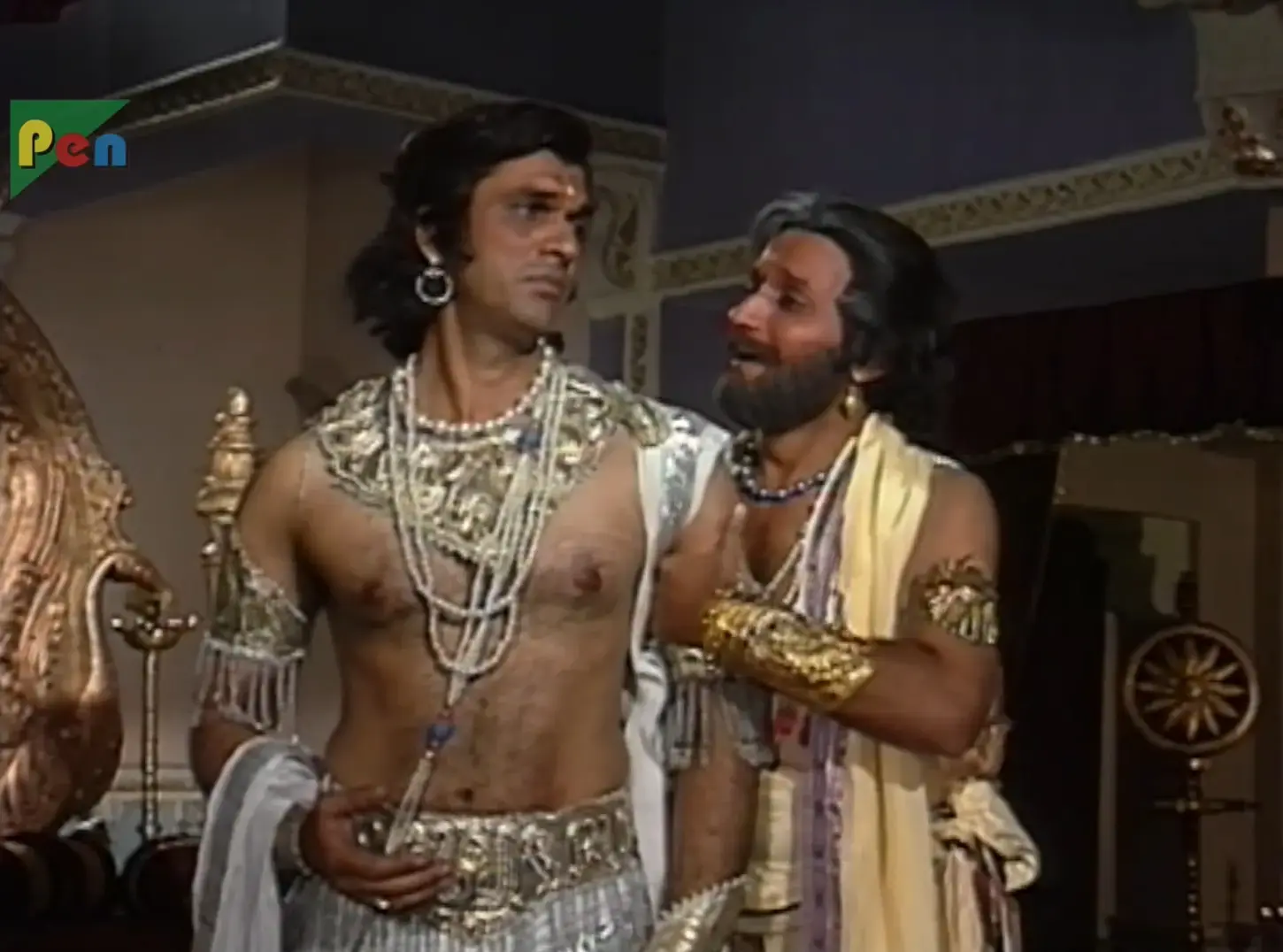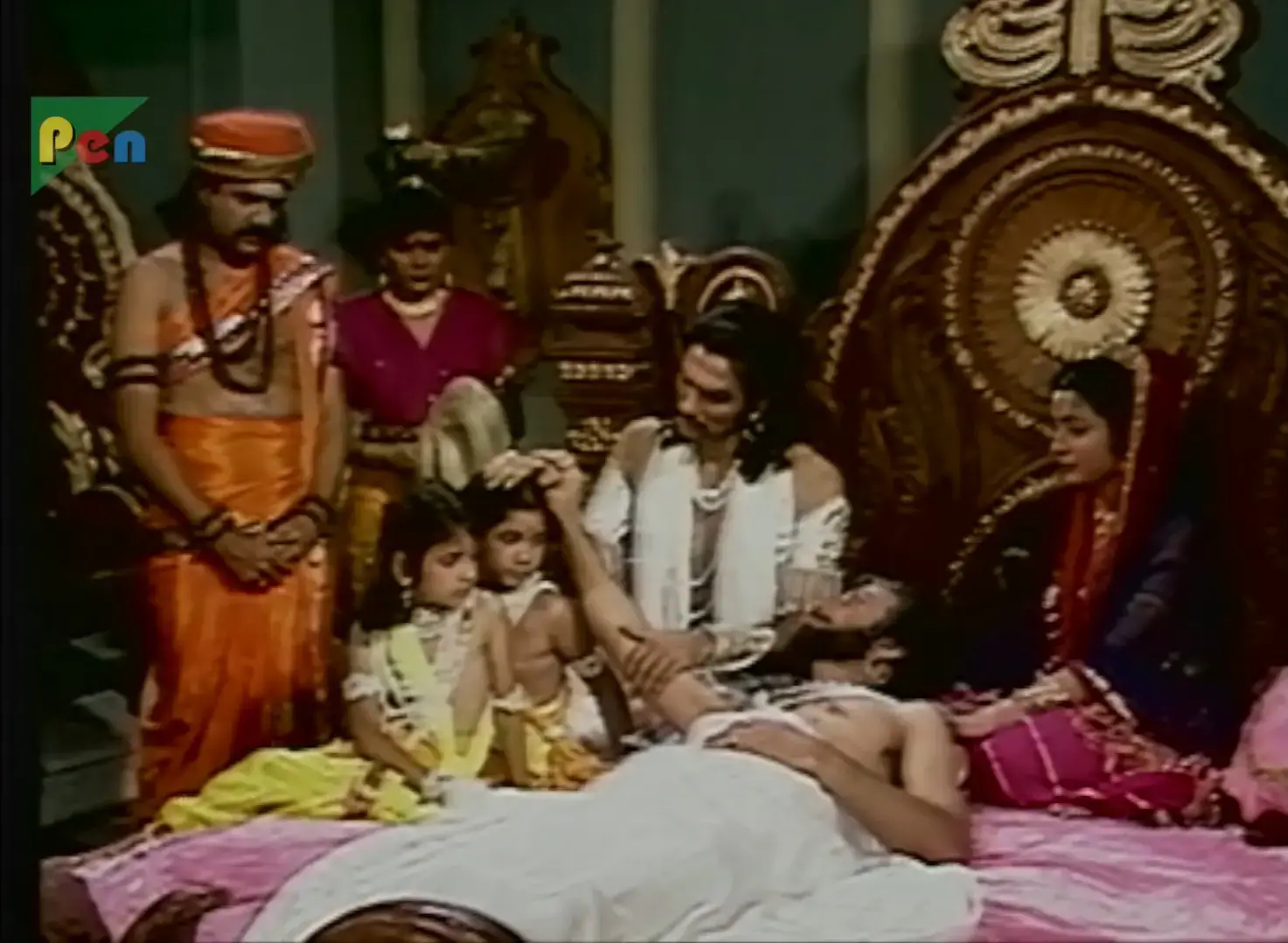Episode 04 - Ichchha Mrityu
Recap
After a two weeks of inactivity, here I am again. Two weeks ago we saw how Devvrat was ready to give up worldly pleasures just so his father can stay happy and in turn, the kingdom of Hastinapur can prosper. His vow of celibacy was called Bhishma or terrible. Moving on let’s see how Shantanu tries to justify his son taking up celibacy for his father.
Ichchha Mrityu
>"Bhishma ko ichchha maran ka vardaan dene vala ye Shantanu, aaj apne maran ka vardaan kis se maange?"“…shanti aur ashanti ke daurahe par khada ye Shantanu tumhe ye vardaan deta hai.. jab tak tum swayam ichchha na karo, mrityu lok ko nahi tyagoge..”
I feel like Bhishma pratigya was not discussed much other than this. From my point of view it was a contradiction in itself. Bhishma takes up celibacy and gives up the royal throne so his father can remain happy by marrying the woman he loves, and in turn, the kingdom of Hastinapur can flourish. While a noble thought, isn’t Bhishma himself giving up his own responsibility to the kingdom of Hastinapur by promising the throne to a child that hasn’t seen the light of this world yet? Is that not a contradiction when he possibly darkens the future of the kingdom, while claiming to do it for the kingdom?
These are some questions that are best left unanswered because there is no single answer to them. Bhishma did what he did because the best way to keep Hastinapur from it’s downfall in the present was to keep the king happy, even if that meant giving up it’s future in the hands of uncertainty. While there could have been other, less pleasant solutions to this, Bhishma could not have carried them out due to his duties to his father. As I said at the beginning of this series, this was a time of honor and fulfilling duties. Whether they are to one’s father, one’s kingdom or to one’s own self.
For all future purposes, I will now be referring to Bhishma as Bhishma beacuse ever since he took that Bhishma Pratigya, Devvrat ceased to exist. He is no one but Bhishma. The show portrays Bhishma as someone who always upholds the truth, someone who values honor more than anything else. Then why did he support the Kauravs in the great war? The answer to this might be found in future episodes. At one point in the episode, Ganga tells Bhishma that he has taken birth to uphold Dharma, but if that is true, then was supporting kauravs the right thing? As I said, the answers lies in the future, once we meet the sons of Kunti.
Meanwhile, Shantanu, not sure whether to be happy or ashamed, gives a boon of ichchha mrityu to Bhishma. It means wishful death. Bhishma cannot die, unless he wishes so himself. Does that boon equate to the sacrifice that Bhishma gave to please his father? I don’t think so, but it can be a coping mechanism by Shantanu to console himself that what his son did was not his fault, and he did it as a form of worship to his father. How long will this coping last though?

While watching this episode, I never thought that this is the episode where we will say goodbye to a major character. Shantanu, the Shantanu who was plagued by guilt as much as he was plagued by unfound love, succumbs to death. It is death by grief it seems. Grief caused by bad decisions, by a weak will, and a sense of responsibility to the events that might happen in the future. It is indeed a tragic life that he lived, even though he had everything. A loving wife, an obedient son who worshipped him like a god, and a kingdom that believed in him.

Some notable points:
-
Rajguru asks the same questions that plague us as the audience, and those questions are aptly answered by Bhishma. While this happened, Bhishma made another promise, that he will always be a servant to the throne of Hastinapur. This might allude to Bhishma pulling the strings to future kings.
-
Another lost character makes an appearance, Kripa. One of the infants that was found by Shantanu years ago, and he is appointed as the Rajguru of the court.
-
While Bhishma is not the king himself, it looks like he will be a king by proxy, until the princes are of age.
Other notable dialogue:
>"Chinta ki rekhayien, pita ke mathe par hai ya Raja ke mathe par?" > >"Dono ke Mathe par" > >"To pehle pita se puchu ya raja se?" > >"Pehle tum us nirbal vyakti se pucho, jo na pita ban saka na raja."“Tum nitipati nahi pratinidhi ho, nitipati to keval ishwar hai.”
